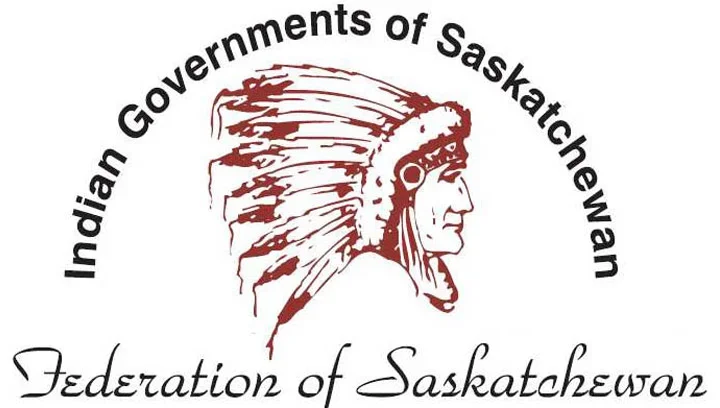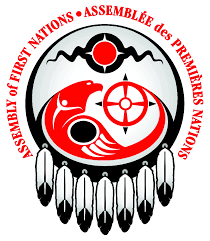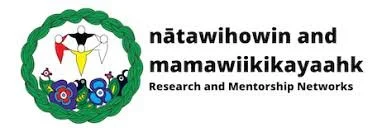
Supports and Resources
Connect with an Elder or Knowledge Keeper
Are you interested in working with an Indigenous Community? Would you like to meet with an Elder or Knowledge Keeper? Our Indigenous Research and Engagement team can help connect you with someone. They can also provide guidance on protocols and other tools to ensure a good start to form respectful relationships. Contact scpor@usask.ca for more information.
Knowledge Keepers and Elders hold the story and history of their people. They provide guidance and wisdom. SCPOR is fortunate to work with many inspiring and dedicated individuals.
Truth & Reconciliation Commission Calls to Action
The 94 Calls to Action (CTAs) are actionable policy recommendations meant to aid the healing process in two ways: acknowledging the full, horrifying history of the residential schools system, and creating systems to prevent these abuses from ever happening again in the future.
Prevention, according to the CTAs, will happen by:
Teaching all Canadians the reality of Indigenous Peoples' treatment
Creating educational and economic opportunities for Indigenous Canadians so they can fully participate in society
SCPOR is committed to reconciling the harms perpetrated on First Nations, Métis and Inuit Peoples.
-
#18: We call upon the federal, provincial, territorial, and Aboriginal governments to acknowledge that the current state of Aboriginal health in Canada is a direct result of previous Canadian government policies, including residential schools, and to recognize and implement the healthcare rights of Aboriginal people as identified in international law, constitutional law, and under the Treaties
-
We call upon the federal government, in consultation with Aboriginal peoples, to establish measurable goals to identify and close the gaps in health outcomes Calls to Action| 3 between Aboriginal and non-Aboriginal communities, and to publish annual progress reports and assess long-term trends. Such efforts would focus on indicators such as: infant mortality, maternal health, suicide, mental health, addictions, life expectancy, birth rates, infant and child health issues, chronic diseases, illness and injury incidence, and the availability of appropriate health services.
-
In order to address the urisdictional disputes concerning Aboriginal people who do not reside on reserves, we call upon the federal government to recognize, respect, and address the distinct health needs of the Métis, Inuit, and off-reserve Aboriginal peoples.
-
We call upon the federal government to provide sustainable funding for existing and new Aboriginal healing centres to address the physical, mental, emotional, and spiritual harms caused by residential schools, and to ensure that the funding of healing centres in Nunavut and the Northwest Territories is a priority.
-
We call upon those who can effect change within the Canadian health-care system to recognize the value of Aboriginal healing practices and use them in the treatment of Aboriginal patients in collaboration with Aboriginal healers and Elders where requested by Aboriginal patients.
-
We call upon all levels of government to:
Increase the number of Aboriginal professionals working in the health-care field.
Ensure the retention of Aboriginal health-care providers in Aboriginal communities.
Provide cultural competency training for all healthcare professionals. .
-
We call upon medical and nursing schools in Canada to require all students to take a course dealing with Aboriginal health issues, including the history and legacy of residential schools, the United Nations Declaration on the Rights of Indigenous Peoples, Treaties and Aboriginal rights, and Indigenous teachings and practices. This will require skills-based training in intercultural competency, conflict resolution, human rights, and anti-racism.
Partners and Collaborators
Glossary of Terms
Community Based Participatory Research: Research that focuses on social, structural, physical, and environmental inequities through active involvement of community members, organizational representatives, and researchers in all aspects of the research process – including decision making authorities. Partners contribute their expertise to enhance understanding of a given phenomenon and integrate the knowledge gained with action to benefit the community involved.
Canadian Institutes for Health Research (CIHR): Canada’s federal funding agency for health research. Composed of 13 institutes, CIHR collaborates with partners and researchers to support the discoveries and innovations that improve health and strengthen the health care system.
Ethical Space: A metaphysical meeting place or neutral zone between two contrasting worldviews where cross-cultural dialogue can take place. Engagement in this ethical space can trigger a dialogue modeled on appropriate, ethical, and human principles – where notions of universality are replaced by concepts such as equality of nations – that carries the possibility of developing a cooperative and innovative spirit between Indigenous peoples and Western institutions.
Data: Data refers to all information collected during a research project. Research data is any information created to validate original research findings. Although usually digital, data also includes non-digital formats such as notebooks and diaries.
Data Sharing Agreement: A data-sharing agreement is a formal contract that clearly documents what data is being shared, and how the data can be used. Data-sharing agreements protect the agency (or community) providing the data, and ensure that the data will not be misused.
Knowledge Keepers: Traditional Knowledge Keepers are the foundation from which First Nations and Métis traditions, customs, laws, and spirituality are taught. They are the keepers of Indigenous knowledge that has been passed down from generation to generation since time immemorial.
OCAP®: Self-determining Indigenous nations have the right to Ownership, Control, Access and Possession of their data (OCAP®). OCAP® asserts that First Nations have control over data collection processes in their communities, and that they own and control how this information can be used. As such, it provides a framework for First Nations data governance.
Research Agreement: A research agreement is a document that serves as a primary means of clarifying and confirming mutual expectations and, where appropriate, commitments between researchers and communities. At minimum, a research agreement should address ethical protections such as securing informed consent, commitments to the community including community participation and decision making, sharing and benefits of collected data.
Self-Determination: The concept of self-determination is a key principle in international law and is defined as the rights of peoples to determine by who and how they wish to be led or governed. Self-determination can also be expanded to describe collective Indigenous decision-making capacity over key issues affecting communities and nations. In the context of research, Indigenous self-determination involves the right of Indigenous peoples to have authority over research methodologies, methods and materials produced that come out of research projects and programs affecting their communities. Indigenous self-determination in the area of research also involves the right to veto projects understood to pose a detrimental risk to community wellness.
Sovereignty: A concept that allows for the recognition of the inherent right to self-government and provides guarantees that this right would have constitutional protection and thereby not subject to the passing whims of non-Indigenous governments.
Strengths-Based Approach: A strengths-based approach is a conceptual framework for health research with Indigenous peoples which capitalizes on existing Indigenous resiliency and wellness. A strengths- based approach does not involve ignoring the historical and social realities facing Indigenous peoples; rather this approach seeks to move towards overcoming deficit-based health research models.
Truth & Reconciliation Commission (TRC): The TRC was a component of the Indian Residential Schools Settlement Agreement. Its mandate was to inform all Canadians about what happened in Indian Residential Schools (IRS). The TRC documented the truth of survivors, families, communities and anyone personally affected by the IRS experience.
Two-Eyed Seeing: Two-Eyed Seeing refers to learning to see from one eye with the strengths of Indigenous knowledges and ways of knowing, and from the other eye with the strengths of Western knowledges and ways of knowing, and to using both these eyes together, for the benefit of all. In health research, two-eyed seeing entails applying and engaging Indigenous and Western worldviews on health simultaneously.
Assembly of First Nations (AFN): The AFN is a national advocacy organization representing 634 First Nations in Canada. The AFN’s work encompasses a diverse range of policy sectors such as health, languages, education, social development, legal affairs and justice, parliamentary relations, and international advocacy – among other important issues.
Federation of Sovereign Indigenous Nations (FSIN): The Federation of Sovereign Indigenous Nations represents 74 First Nations in Saskatchewan. The federation is committed to honouring the spirit and intent of the Treaties, as well as the promotion, protection and implementation of the Treaty promises that were made more than a century ago. The FSIN manages a number of internal commissions and secretariats geared towards a number of diverse fronts such as health and social development, lands and resources, education and training, justice, treaty governance, residential schools, economic and community development, and so on.
Indigenous Nationhood: The term Indigenous Nationhood is commonly used to acknowledge that the political and social organization of Indigenous peoples is characterized by complex governance systems and legal traditions. Using the term Indigenous nationhood confers recognition and most importantly, respect for the legitimacy and resiliency of Indigenous nations as distinct and enduring. Indigenous Nationhood became the foundational premise of the treaty making process that saw the Crown and Indigenous nations enter in to nation-to-nation agreements.
Métis Nation of Saskatchewan: The Métis Nation of Saskatchewan represents the province’s Métis citizens. The Métis Nation Legislative Assembly is the governing authority of the Métis Nation-Saskatchewan and has authority to enact legislation, regulation, rules and resolutions governing the affairs and conduct of the Métis in Saskatchewan The MNS covers a diversity of ministerial portfolios including but not limited to health, the environment, education, economic development, and housing.







